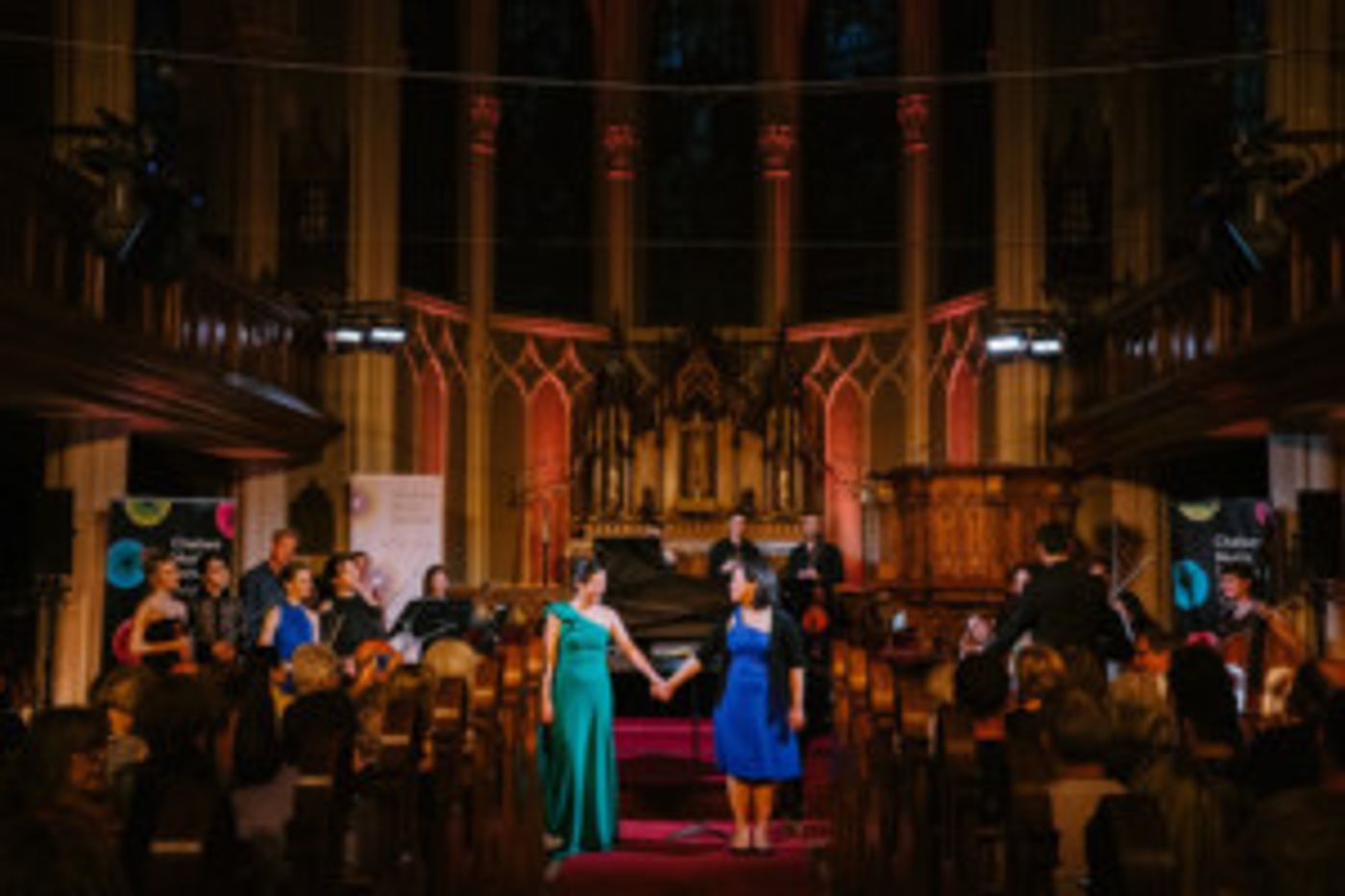Review: CHELSEA MUSIC FESTIVAL HONORS CLARA SCHUMANN at St.Paul's German Lutheran Church


In the music world, it's always someone's birthday, an occasion for celebrations that include whole festivals, single concerts, books, lectures, cooking classes, you name it. 2019 marks the 200th birthday year of Clara Schumann (1819-1896). Who is Clara Schumann, and why are we celebrating her birth year, you might ask. Here's why: Clara was the rock star concert pianist of the 19th century. She was one of the very few women to break into what was considered a man's profession, up against the likes of Liszt (another rock star) and Chopin. She measures up and then some to the heavy-hitters of Romantic pianism. One critic of the time said: "The appearance of this artist can be regarded as epoch-making... In her creative hands, the most ordinary passage, the most routine motive acquires a significant meaning, a colour, which only those with the most consummate artistry can give." Among many other innovations, Clara was the first performing artist to memorize her music, which is standard practice even today.
Aside from being an active musician, she was also a composer at a time when the idea that a female could actually write high quality music was quite radical. Having studied composition with her father, who was also her piano teacher until pianist Robert Schumann came along, Clara produced a fairly large body of work consisting of orchestral music, chamber music, and works for solo piano. After her hard-won marriage to Robert Schumann, and particularly during her childbearing years (from 1841-1854 the Schumanns produced eight children), her compositional activities began to decline. It concerned Robert enough for him to say that "Clara has composed a series of small pieces, which show a musical and tender ingenuity such as she has never attained before. But to have children, and a husband who is always living in the realm of imagination, does not go together with composing. She cannot work at it regularly, and I am often disturbed to think how many profound ideas are lost because she cannot work them out."
They are not entirely lost. Once again, Clara is an international star.
New York's Chelsea Music Festival, now in its 10th season, has been dedicated to Clara Schumann ( the Festival's official title is "200 degrees due Clara"). This roughly 10 day, multi-venue and multimedia celebration of Clara's life and works also includes commissioned compositions by ten young women. Some of these works will be having their world premieres during the Festival. Founding Artistic Directors Melinda Lee Masur and husband Ken-David Masur (Music Director Designate of the Milwaukee Symphony) have designed a fascinating series of concerts, art exhibitions and culinary experiences unmatched by any other organization in New York City.
The Tenth Season Festival Gala on Friday, June 7 at St. Paul's German Lutheran Church in Chelsea was the first case in point. The concert opened with Melinda Lee Masur performing Clara Schumann's Scherzo No. 2 in C minor (1839). Clara would regularly program this work on her recitals. It's easy to hear why: it showcases the performer's agility and virtuosity in one breathtaking movement. Ms.Masur was brilliantly up to the task. Her perfect technical ability coupled with her emphasis on the singing, soaring melodic lines (also one of Clara's specialties) made for a terrific start to the concert.
Seascapes (2019), a Chelsea Festival commission by Composer-in Residence Jane Antonia Cornish (b.1975) followed the Scherzo without a break. The audience was immediately plunged into a dense sound world, mesmerizing in its intensity. Ms. Masur's piano helped create different tone colors, which also were produced by the string ensembles on the stage and in the balcony. Sensitively conducted by Ken-David Masur, the ethereal three movement work held the audience in absolute stillness at its conclusion. This was the World Premiere performance of Seascapes. May it have a long and happy life.
Concerto for Two Keyboards in C major, BWV 1061 (1734) by J.S.Bach (1685-1750) completed the first half of the program. Originally conceived for two harpsichords and string ensemble, it was performed here by the string ensemble and two pianists, Andrea Lam and Melinda Lee Masur. The piece just bubbles out of all the instruments, although it is far from easy to execute. The coordination between the two pianists was so tight that it was frequently hard to tell who was playing what and when. Timing is everything in duo piano work. Conducted with bounce and authority by Ken-David Masur, the piece was as much fun to listen to as it must have been to play. Both Clara and Robert Schumann were great J.S. Bach fans so it's conceivable that one or both of them would have performed this lovely work.
Clara and Robert Schumann, like many of their contemporaries, were inveterate letter writers. Kept apart by Clara's father prior to their marriage, the two poured out their hearts to each other as often as they could. Aigerim Seilova (b.1987), one of the "Clara Schumann 10" composers this year, took one of Clara's letters -this one responding to Robert's proposal- and set it to her own highly expressive music. This World Premiere was sung by up-and-coming soprano Marisa Karchin, backed by a string trio, clarinet, flute, and piano ensemble. At times, particularly when the soprano part went high, Ms. Karchin's German diction faltered. When the vocal line came back to earth it was much easier to understand her. German is not the easiest language in which to sing, but Ms. Karchin's vocal quality sparkled throughout the piece.
The final composition was an energetic reading of Robert Schumann's (1810-1856) Piano Quartet in E flat major, Op.47 (1842). Performed by Clara throughout her lifetime, this was a musically complex yet highly accessible piece. The enthusiastic, youthful performers all seemed to be having some serious fun with it.
This concert was a great start to the fabulous 10th Chelsea Music Festival. Information on the upcoming concerts and events can be found at www.chelseamusicfestival.org
Try to attend an event or two...or more!
Reader Reviews
Videos

